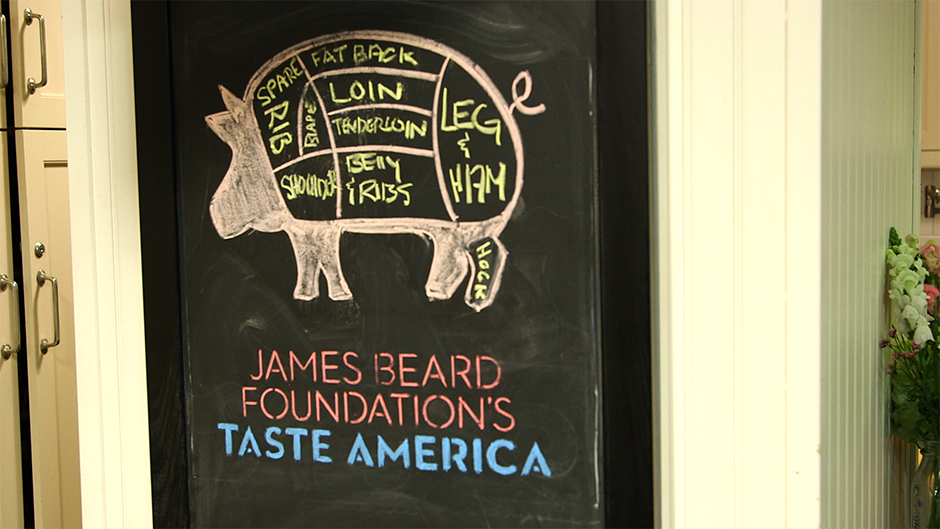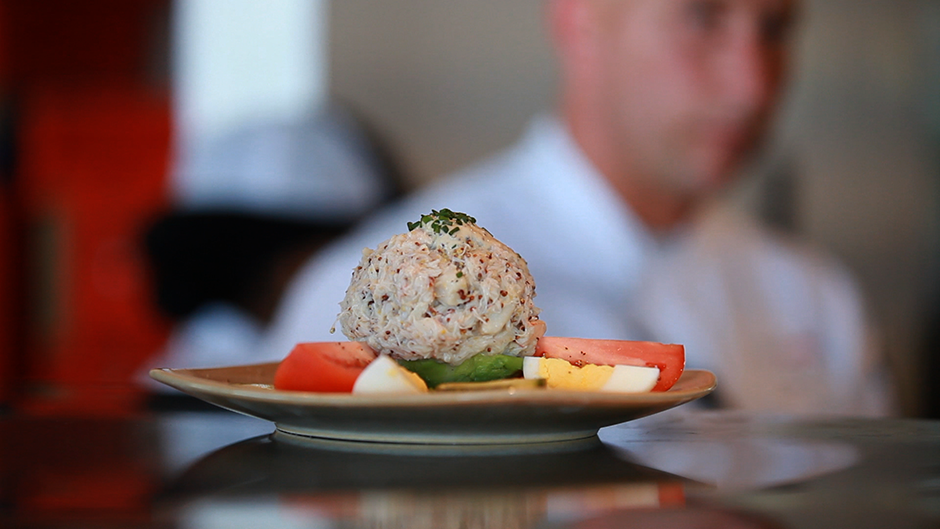For many of us, favorite restaurants, recipes, and ingredients spark strong memories and feelings from past experiences.
More than pictures or home movies, the multi-sense overload of food from the aromas, the rich flavors, the sensations, the sound of the oil crackling in the pan, and the sheer beauty of the dish on the plate can leave indelible marks in our minds that we return to time and time again.
For chefs in particular, these imprints are strong and deep, making it impossible to separate the recipes created today from the memories that came before. What chefs hope to bestow on guests who eat at their restaurants is similar to what they bring with them from their past and is founded in a deep desire to create indelible memories.
“I remember my mother’s liverwurst sandwich with yellow mustard and sliced onion on Stroehmann white bread,” says Michael Schwartz of Michael’s Genuine Food & Drink. “It takes me back to that time when I was still a kid, but was starting to think I knew everything.”
Schwartz is not alone when it comes to reminiscing about the impact family recipes had on their childhood. Many chefs credit their grandmothers for encouraging them and starting them off on the path to cooking, not to mention making some of the most memorable dishes.
“We have a lot of good food memories,” Dave Pasternack of Esca tells us. “My grandmother loved bluefish. We’d go out and catch them, and she would cook them. She never used just a stove. She either cooked it in a skillet or she used an old-fashioned broiler that you’d put on top of the stove.”
For Michael Anthony of New York’s legendary Gramercy Tavern it’s all about his grandmother’s meatballs. “I’m the oldest grandchild in our family and I got special access when she made family dinners. I especially loved her homemade meatballs, browned and right out of the pan, before they simmered in the tomato sauce.”
Jeremy Sewall of Island Creek Oyster Bar didn’t have the same initial enthusiasm for all his grandma’s creations. He recalls one time when he was ten.
“When I was told we were having my grandmother’s fish chowder for dinner, I wasn’t too happy about it. I remember taking the first and tiniest sip I could and being truly amazed that I liked it. I more than liked it. I loved it,” he laughs. “It has potatoes, celery and creamy haddock. It was one of the best food experiences of my life, even to this day. I rarely make fish chowder because I feel I can’t live up to what was made for me all those years ago. It was an experience I can’t repeat.”
Floyd Cardoz of the North End Grill remembers a meal he had with his father that changed his life when he was 15 years old.
“My father took me out to lunch in a fancy restaurant in Bombay. It was my first experience eating a prix fixe, and we had five courses. When I sat down I was so overwhelmed with the experience. I did not know which set of knives and forks to use for my meal (there were five courses of cutlery laid on the table). I had five courses of delicious food and today I remember that meal not for what I ate but for the experience. My decision years later to get into hospitality and then the kitchen was influenced by that meal I had.”
But the best memories don’t always have to stem from such a grand experience. They can sometimes just be the right meal at the right time, as Michael Schwartz proves. “The most memorable meal I had might have been at Denny’s with a Beard Medal around my neck,” he recalls. “I got the Grand Slam and felt like a king.”
Above and beyond winning cooking accolades, stars, or awards, what these chefs want is for their restaurants and their food to be a vehicle for creating memories for their customers.
“We want the food to leave an indelible mark,” says Michael Anthony. “I hope our diners leave with a feeling of eating a meal that is connected to our specific region, identifiable as a particular moment in a season, and symbolic of contemporary American cooking.”
“I want customers to leave Esca realizing that fish is more than just salmon and tuna. You know, that there are other choices that are better, different, and you should be open-minded and try them,” says Pasternack.
Sewall seconds Pasternack’s sentiment. “I hope that people try something new and always remember where they had it. The sense of place and belonging that can be associated with a certain dish or a certain restaurant is irreplaceable.”
“Eating that first oyster or trying a new food for the first time is a great memory to be a part of,” says Sewall.
For Floyd Cardoz it is about translating his passion for cooking to his customer’s experience. “I love being in a happy place when I cook, which in turn makes my food taste good,” he explains. “I want every guest who leaves my restaurant to leave raving and experience the flavor and textures I bring to food. I want everyone to leave craving my food.”
Michael Schwartz puts it simply, in terms any chef understands. “Satisfication,” he says. “I hope they take away the satisfaction that comes with having a meal prepared for you with the freshest ingredients.”






